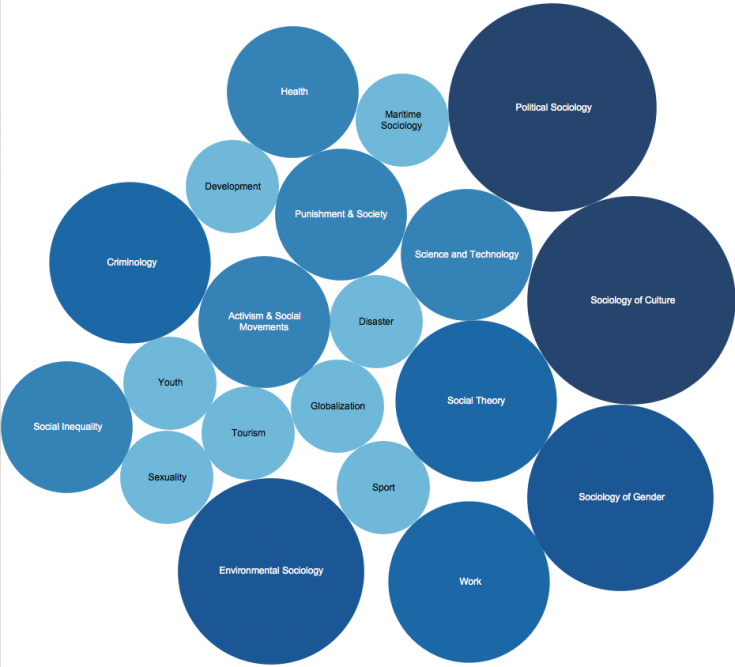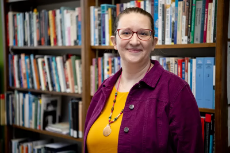Our Department
The Sociology Department at Memorial University is one of the largest departments in Atlantic Canada. Faculty and graduate students research within several core areas: Social Theory, Sociology of Culture, Criminology, Environmental Sociology, Social Inequity, Sociology of Gender, Sexuality, Health, Development, Work and Labour, Political Sociology, Maritime Sociology, and Sociology of Science and Techology, as well as other specialities.

In our teaching and research, we draw on a wide range of approaches – basic and applied, theoretical and empirical, quantitative and qualitative. We have always strived to be a publically engaged department, and our students and faculty are involved in a wide range of projects in partnership with members of the public of Newfoundland and Labrador and beyond.
Department of Sociology: 2022 Activities
AWARDS
After an eventful year, the department of sociology congratulates three department members that had an especially successful year and won some significant awards:

Dr. Nicole Power
Co-recipient of the Canadian Association of University Teachers Sarah Shorten Award for her work with the Joint Gender Equity Salary Adjustment Committee at MUN
Co-author of the article “Multispecies Hierarchies and Capitalist Value: Insights from Salmon Aquaculture”, published in the high-impact international journal Environment and Planning E: Nature and Space

Dr. Eric Tenkorang
Recipient of the Harry Frank Guggenheim Foundation award ($90,000) for "Kindship, lineage norms and intimate partner violence against women in Ghana"
Expert consultant for the Canadian Centre for Women's Economic Empowerment, as well as for Correctional Services Canada and is
Co-applicant on the successful International Development Research Centre (IDRC) funded project: Examining the Socio-economic and health vulnerabilities of female 'bushmeat' traders in Ghana during and after the COVID-19 pandemic ($888,600).

Lisa-Jo van den Scott
Winner of the international 2022 Kathy Charmaz Early-in-Career Award, Society for the Study of Symbolic Interaction
Editor of the international journal Symbolic Interaction
Conference co-organizer of the 38th Annual Qualitative Analysis Conference and Couch-Stone Symposium, hosted through MUN
PUBLICATIONS AND RESEARCH ACTIVITY
From September 2021 to August 2022, Sociology Department faculty members collectively worked on
|
29 |
52 |
27 |
20 |
|
publications |
publications in progress |
conference papers and invited talks |
active research grants |
These department members prepared some of the most significant publications this year:
 Image 1.jpg)
Judith Adler was an editor and wrote the Introduction for a Forum on Russian Regress: Reading Victor Zaslavsky in a Time of War for the international journal Society (59.3).
Rochelle Côté co-authored the forthcoming paper “Bridging Boundaries? The Effect of Genetic Ancestry Testing on Ties across Racial Groups” in the high-ranking international sociology journal Social Problems.
Stephen Crocker co-edited and authored two chapters in the volume Muskrat Falls: How a Mega-Dam became a ‘Predatory Formation’ (Memorial University Press).
 Image 2-275x419.jpg)
Daniel Kudla published a state-of-the-field review, “Fifty Years of Business Improvement Districts: A Reappraisal of the Dominant Perspectives and Debates” in the high-impact international journal Urban Studies.
Mark Stoddart co-edited and co-authored three chapters in the Handbook of Anti- Environmentalism (Elgar).
PUBLIC AND COMMUNITY ENGAGEMENT
Our department demonstrated strong commitment to public engagement, as well as service to the community and external organizations. Several faculty members made media appearances to promote their research and engage in knowledge mobilization, including with CBC, VOCM, and The Conversation.
Furthermore, the department’s expertise was continuously represented in a number of other projects and organizations, including some of the Canadian government:
Dr. Rochelle Côté co-developed the Kuei Tshima minu-takushiniekᵘ! Shaking the Tent Cultural Competency Training with the Partnership & Business Development Office, Innu Development Limited Partnership.
 Image 3.jpg)
Dr. Scott Kenney served on the Board of Directors for the Canadian Resource Centre for Victims of Crime, Ottawa, Ontario.
Dr. Adrienne Peters co-authored research reports for the Department of Health & Community Services, Government of Newfoundland and Labrador, as well as for BC Corrections, Ministry of Public Safety & Solicitor General, Government of British Columbia.
Dr. Mark Stoddart served as an expert reviewer and contributed to the draft of Climate Science 2050: Advancing Science and Knowledge on Climate Change for Environment and Climate Change Canada (Government of Canada), in addition to being a member of the Advisory Committee for Transparency International Canada.
Dr. Allyson Stokes served as a member and advisor of Education Onward, which is a multi-sectoral council convened by Fair Chance Learning to synthesize expert knowledge on impacts of COVID-19 on education in Canada, transitions to remote learning, and equity issues within and across school boards.
 Image 4.jpg)
TEACHING
Furthermore, we continue to teach a wide range of courses in Sociology and Criminology that draw a substantial portion of HSS students and are excited to announce two new additions to our program:
- SOCI 4205: Indigenous Peoples and the City (developed by Rochelle Côté)
- SOCI 2290: Animals & Society for online delivery (developed by Nicole Power)